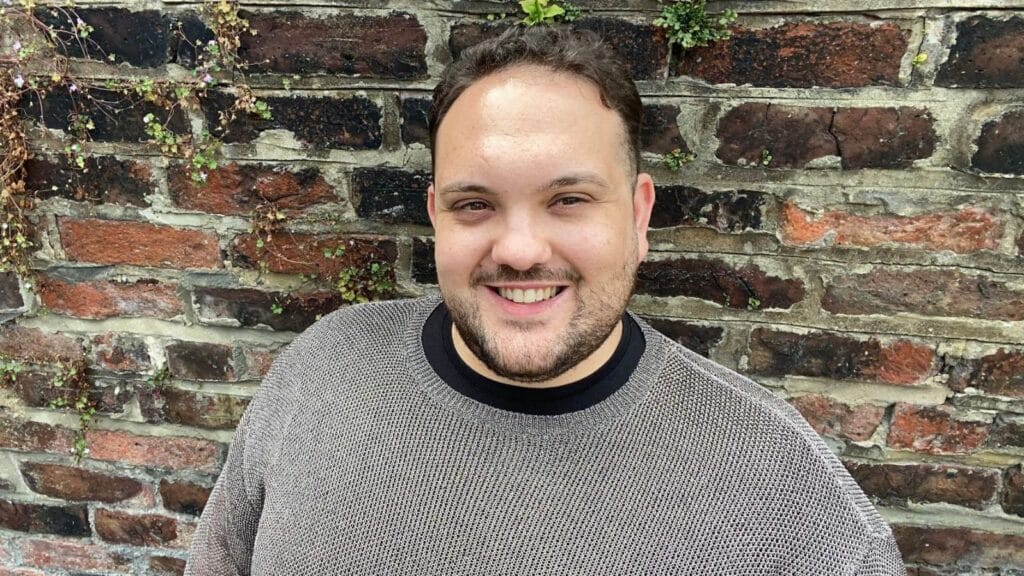Despite many businesses now claiming to promote employee mental health initiatives through ‘perks’ such as flexible working and wellbeing days, a number of Northern PR and marketing professionals have opened up about their experiences with anxiety, depression and burnout at work.
To mark World Mental Health Day today (10 October), we’ve uncovered reports of ‘toxic’ managers, unsustainable workloads and even ‘racist’ remarks being dismissed as workplace banter. It has left some working across the North’s PR and marketing world ‘shaken’ by their experiences – and one PR executive has considered leaving the sector.
“I needed to get out. I lost quite a bit of weight from not sleeping properly. My mind was everywhere and I ended up turning to drink a bit,” Grace*, a PR executive in Manchester, tells Prolific North.
Everything seemed great at first for Grace* and she was performing well on all but one account. But within a few months, a PR boss became ‘cold and nasty’ towards her.
“I had my end of year review and was told that digital PR isn’t for everyone… I’m all for being critiqued to learn and improve but nothing positive was said about me.”
As micromanagement kicked in, her confidence was knocked. Sending emails to bosses or clients for approval filled her with dread and anxiety.
“I was given no credit for anything that I did, whereas everybody else got credits for the exact same thing. It was really, really toxic. Any idea I had would be shot down. I ended up having to hand my notice in even though I didn’t have another job lined up at the time.”
91% of PR professionals have experienced poor mental health at some point in the past year, according to a recent report carried out by the Chartered Institute of Public Relations (CIPR) and the Public Relations and Communications Association (PRCA).
It’s a figure that’s sadly familiar for Emily*, who recalls her recent ordeal with ‘toxic’ management at a Manchester PR firm.
“A PR leader at my previous workplace lacked empathy, integrity and emotional intelligence. They are a bully and a narcissist, and made me cry on several occasions. They filled me with dread and anxiety and it really impacted my mental health.
“I didn’t want to go into the office as I didn’t want to have to face her in person. I just siloed myself away.”
After being put in a call to tackle her concerns, even with a mental health first aider present she left feeling “attacked”.
“I left the call crying my eyes out,” she explains. “I had to take time off thanks to struggling with my mental health.”
The lack of support was “disgusting”, as no one reached out to ask how she was. Eventually plucking up the courage to interview elsewhere and secure a new job, she handed in her notice.
“On my last day, nobody from the senior management team said anything to me. Not even a goodbye.”
“I already struggled with mental health. This made it so much worse for me.”
It’s a similar experience shared by Charlotte*, following her recent experience and first job in PR at a company in Manchester. She has mulled over leaving the PR industry entirely after being made to feel like she “wasn’t good enough”.
“It was my very first job in PR. I ended up with three separate points of contact for my ‘line management’ and was told different things by them all.”
Initially, she was told she was “fitting in well” and felt comfortable enough to open up about her mental health struggles with a manager. But there were no workplace adjustments for her needs and the manager soon did a “complete 180”.
“I already struggled with my mental health, but this made it so much worse for me. At the time I would dread going into the office, but even working from home was difficult for me. The immediate team made me feel like an outcast and I honestly wasn’t sure what I had done wrong for it to end up how it did.”
Charlotte* would approve something with a manager, only for a senior leader to disagree and “take it out” on her.
“It was made very clear after our first meeting that she did not intend to keep me on in the company and seemed unwilling to hear me out,” she explains.
“Despite receiving some positive feedback, I was only told of the negative things that other staff members had said about me. I decided that I wanted to resign instead.
“I knew that no matter how much my work had improved, they did not want me to work for them.”
“I was so fearful of every day, of every meeting, of every call…”
Relentless workloads and unrealistic expectations for staff to hit tight deadlines can hit morale hard. For Liam*, his time spent at one major PR firm has left him ‘still a bit shaken up’ as he battled burnout.

“The style of working there started at the top and trickled down. You were driven by fear, that if you had one bad day, one bad campaign sell in, then the senior leaders would be on a call digging you out. And it happened in front of your peers too – which was really degrading.”
After one campaign was going particularly badly, the company’s founder jumped on a call “ranting and raving” and asked the team to work late.
“He gaslit us by saying if we care about our job and the company, we’ll put in the hours tonight to figure out how to make the campaign work tomorrow. I didn’t finish work until around 1am that evening. I was shattered.”
It left Liam* with depression and anxiety, fearful of being fired on the spot.
“I genuinely feared starting work. I worried when I’d finished work that I’d not done enough, so I’d work well past my finish time.
“Sometimes my partner was going to bed while I was still working. I’d always check my emails over the weekend and sneak away to do some work on a Sunday, all out of fear that I would get called out in front of my peers if my KPIs were being let down. It was terrible. I was so fearful of every day, of every meeting, of every call.”
It’s a story that’s all too familiar to Anne* who dealt with burnout following her experience at an agency in Newcastle.
“It was very target driven and we were working towards those each month. A new director stepped in, saw the numbers, and said it wasn’t good enough and kept changing the goal posts.
“You would work towards something for one month, then he would change everything. It was just constant. I was working really hard trying to hit certain things.”
According to NABS, a dedicated charity for the media and advertising industry, its most recent ‘All Ears’ research uncovered just 35% of respondents felt unable to discuss mental wellness in the workplace.
Anne* felt like she couldn’t share how she was feeling and sought therapy to try and juggle difficulties at home and an ‘impossible’ workload without workplace support. Every day, she would desperately count down until the clock hit 5pm.
“I would cry in meetings when I was accused of not performing because I’d been off with a sickness bug. I broke down.
“You are so drained and so knackered you actually don’t have the energy to apply for jobs,” she says.“Every day, every week, every month, we were working to cut the backlog with no overtime pay. I felt stuck. It was really depressing and got to a point where my doctor told me I need a new job.”
The Newcastle agency also had a “boys club” culture and a “glass ceiling” for women wanting to progress.
“If you weren’t in the boy’s club, you weren’t in,” she explains. “With promotions, male members of staff were sometimes helped a bit more to get goals or were treated better.”
Liam* reflects on a similar culture at his former PR firm: “It always felt like those close to management – long time friends, relatives always got preferential treatment, climbed the ladder quicker, and weren’t held fully accountable for their mistakes.”

But it went far beyond nepotism. He witnessed ‘casual’ instances of sexism, racism and homophobia masked as workplace banter.
“There were always lots of jokes about how promiscuous the women at the company were. A senior member of the company also joked about me, a person of colour, and that I would know what it’s like to be on tag – I took that to imply that I was a criminal.
“It made me think, why single me out? I was the only person of colour in the room, and I hadn’t even said anything to that point in the conversation. I was really shocked.”
He claims one male ex-colleague, who was bisexual, would be the target of homophobic ‘casual jokes’ with comments such as “dance with your back to the wall” overheard in the office.
But when he would raise these issue to a colleague or manager, he was met with “that’s just how they are” or “we’ve all had it”.
“It’s not okay to own that you’re not PC just to make offensive jokes. Some people may be fine with it, but using it as a one-size-fits all is one way to alienate many people and make them feel like they don’t belong.”
Beyond toxic workplaces, Samuel Marriott-Dowding shares his own battle with anxiety and depression in his early 20’s.

“When I was 21, I went through a depressive episode. I felt like a complete failure at the time,” he explains.
When Covid hit, he found himself unemployed, living at home with family: “I had no motivation to get out of bed, I was just numb and it took a really, really long time to get to a place where I could acknowledge how I was feeling and then address it.”
Now, he’s the founder and CEO of Sunderland-based marketing agency Marriott Communications, which launched two years ago and was recently shortlisted as Prolific Marketer of the Year for the Prolific North Marketing Awards.
“When I had my mental health problems, I had friends and family to lean on. It was really tough but I got through it thankfully. It’s really important, as a member of the community, to be available to support people whether that’s personally or for business. It doesn’t cost anything to be kind to someone, give them the time of day and work it out.”
When it comes to those experiences of burnout that both Liam* and Anne* have faced, as a leader he shares the importance of putting up boundaries with clients and has learnt how to manage his mental health as a leader by “learning when to say no”.
“If something doesn’t feel right or it doesn’t align with who I am as a person or what my business stands for, then I’m out.”
“Stop ruling by fear”
When reporting issues to managers or HR, many of the people we’ve chatted with believe there were barriers in place or they weren’t taken seriously.
Leadership expert Gordon Tredgold explains how a toxic boss can “demoralise an entire team, undermine productivity and severely affect mental health”.
“Leaders should inspire, not intimidate,” he says. “The root cause of toxic leadership often stems from insecurity, poor communication, and a lack of emotional intelligence.
“When employees feel unsupported, their mental health suffers, leading to burnout, disengagement, and ultimately higher turnover rates. Addressing these issues isn’t just about avoiding toxicity, it’s about creating a workplace where people feel valued, respected, and motivated to contribute. It’s about developing leaders who understand that their role is to elevate their teams, not diminish them.
“Fostering a culture of transparency, accountability, and empathy in leadership is key. When you give people the tools they need to succeed, provide clear goals, and treat them with respect, you’re not just protecting their mental health — you’re setting them up to thrive.”
For Charlotte*, employers need to listen to the needs of all staff regardless of their seniority level: “As soon as I needed some adjustments to support my work performance, I was written off by the more senior team and wasn’t given the time of day.”
Despite raising issues to managers on multiple occasions and sharing her experiences in an exit survey, Grace* is aware her former ‘toxic’ boss is still “behaving the same way” with existing staff.
Her new job is a “breeze” in comparison: “It’s just a complete switch of environment. I’m now actually being appreciated.”
For Emily*, she would tell her former employer to “stop putting people who lack people skills and emotional intelligence in people management”.
She’s now working at an agency that is friendly, welcoming where “everyone is treated equally and has the same opportunities”.
“There’s no hierarchy bullsh*t here about not wanting to speak to junior colleagues that my previous employer had. Here, the co-founders speak to everyone with integrity, respect and the same as the rest of the team.”
There needs to be less lip service and more action from employers, according to Anne* in Newcastle.
“Despite saying you can talk with someone and say that there’s mental health first aiders, if you don’t feel comfortable coming forward and nothing is done to support you, it’s all talk.”
Liam*, who is now in a much happier work environment, has some stark words for his former employer: “Stop ruling by fear. Start respecting people.”
*Names have been changed for anonymity. If you have been affected by any of the issues raised there are multiple services and organisations that can offer advice and support, including via industry charity NABS.









